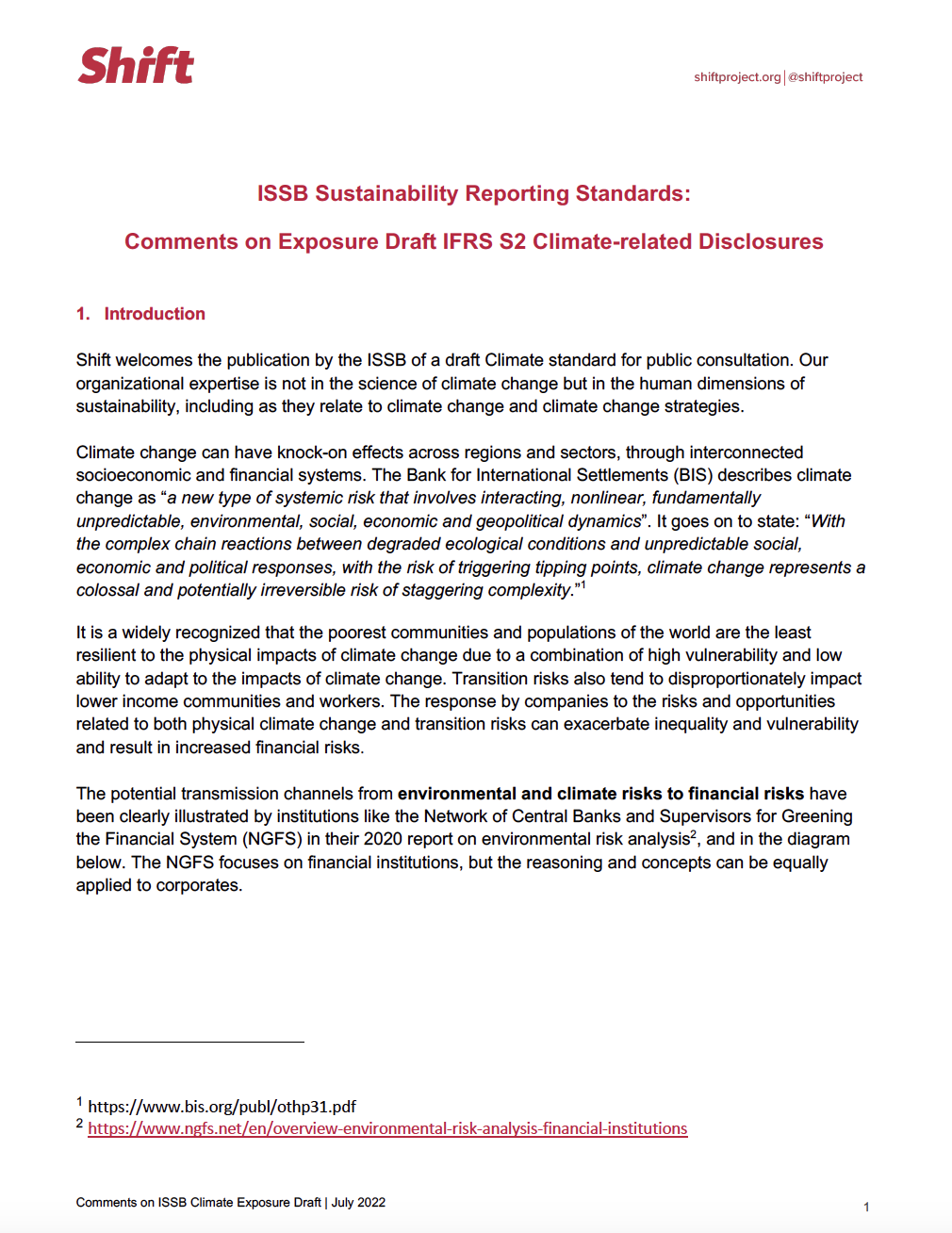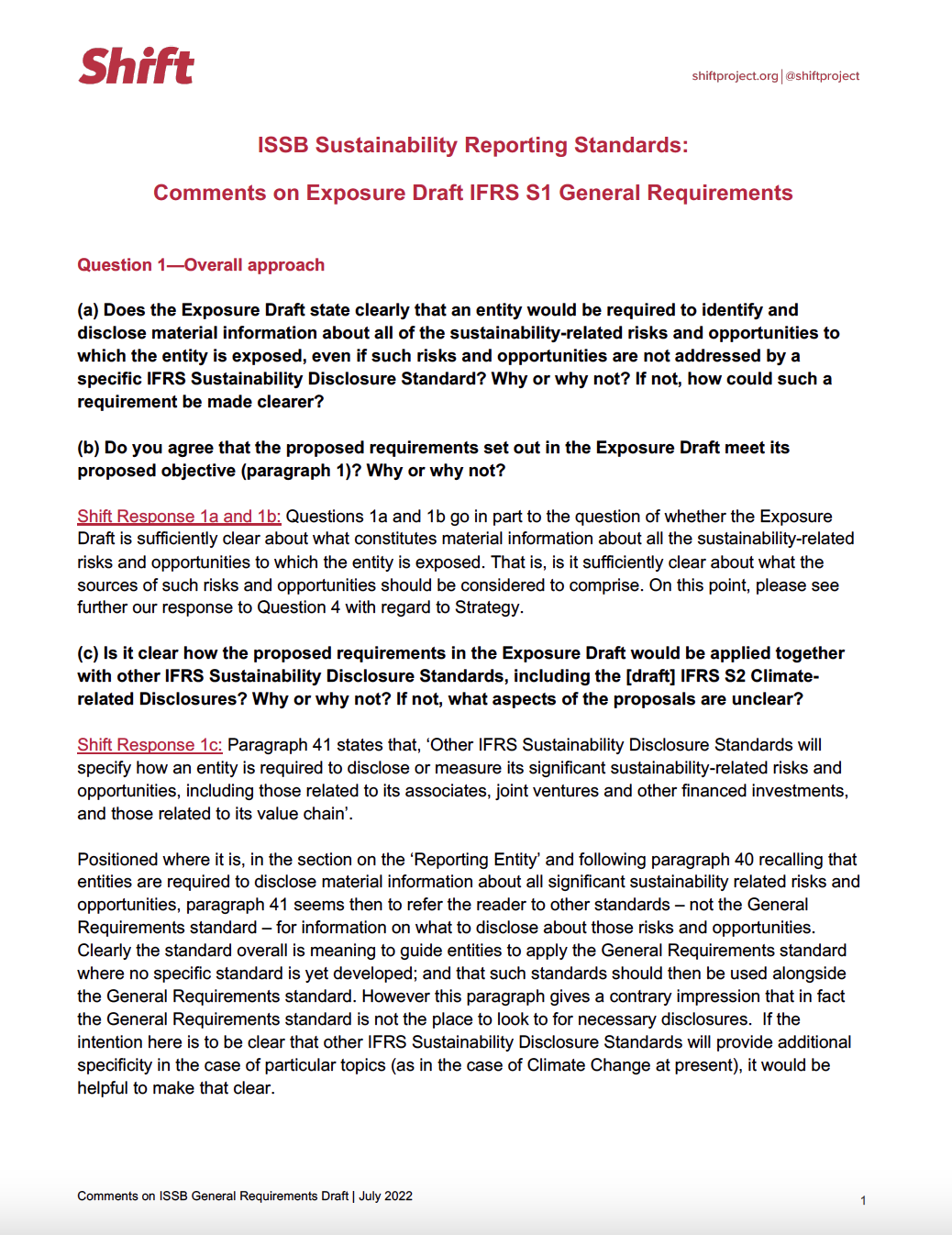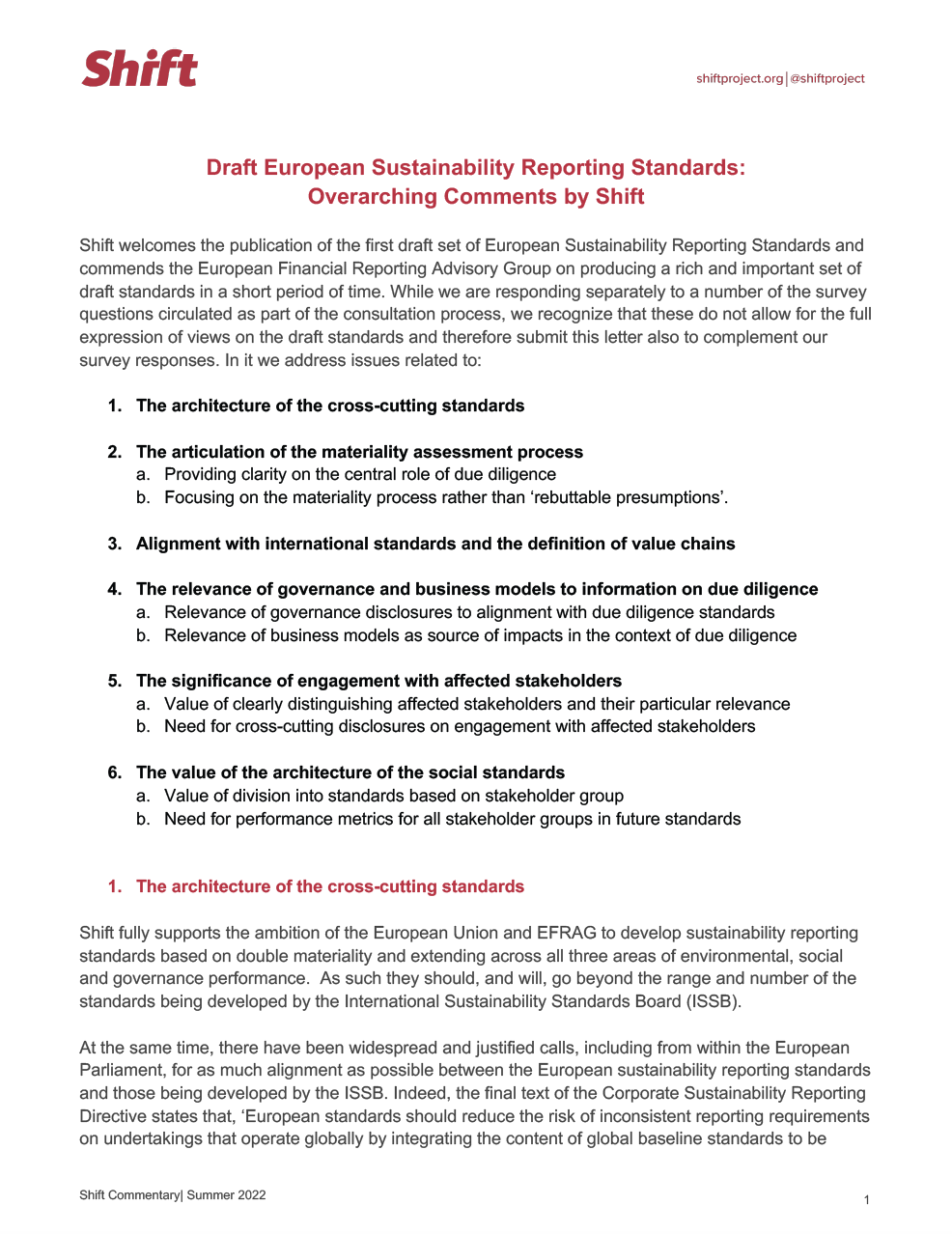Shift welcomes the publication by the ISSB of a draft Climate standard for public consultation. Our organizational expertise is in the human dimensions of sustainability, including as they relate to climate change and climate change strategies.
Climate change can have knock-on effects across regions and sectors, through interconnected socioeconomic and financial systems. The Bank for International Settlements (BIS) describes climate change as “a new type of systemic risk that involves interacting, nonlinear, fundamentally unpredictable, environmental, social, economic and geopolitical dynamics”. It goes on to state: “With the complex chain reactions between degraded ecological conditions and unpredictable social, economic and political responses, with the risk of triggering tipping points, climate change represents a colossal and potentially irreversible risk of staggering complexity.”
It is in light of these important interconnections that we submit these comments to the ISSB to urge that the draft standard be revised to reflect a more holistic picture that integrates the human dimensions and implications of climate change, climate mitigation, and climate adaptation. Without this, we will not only fail to achieve a just transition to carbon-neutral economies but will see continuing barriers to the success of undertakings climate change strategies, with consequences for business and the providers of capital, among others.


